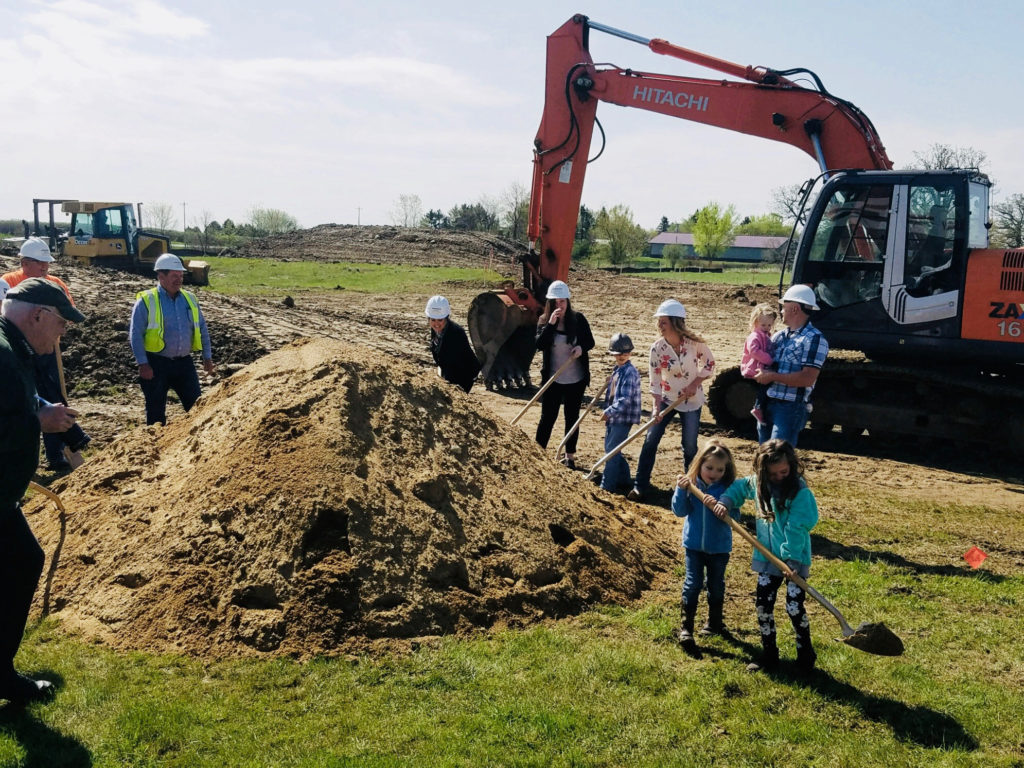
The calls kept coming to Krystal Campbell’s home-based child care business in a growing community in southeast Minnesota, from parents scrambling for last-minute day care. Campbell remembers one in particular from an expectant mother: Was there room for her infant when she went back to work?
As a licensed provider booked for 12 children, Campbell had to turn away the caller. “She had called more than 70 day care providers near her home in Olmsted County. People are getting desperate. At one point, my husband and I said to each other, ‘There’s got to be something we can do to help out these families.’”
And there was a solution, thanks in part to their electric cooperative’s revolving loan fund and partnership with a local economic development agency.
A $125,000 pass-through loan from People’s Energy Cooperative via the Department of Agriculture’s Rural Economic Development Loan and Grant (REDLG) program is helping finish construction on the Campbells’ new business: Sprouts Child Care and Early Childhood Education.
Set to open the end of October, Sprouts Child Care in Stewartville will have openings for more than 100 children—including drop-ins—ages six weeks to 12 years old.
“I’ve worked in management and child care and it’s always been a dream of mine to combine the two,” said Campbell, a co-op member for about 10 years. “I had no idea the co-op had such a thing as gap financing for small-business owners” until the local economic development agency referred her to People’s Energy Cooperative in Oronoco.
Increasingly, electric co-op revolving loan funds—an arrangement in which funds are loaned out, repaid and then loaned out again—are becoming a piece of the puzzle in the complex financial equation of opening and sustaining community-based child care businesses.
“Our communities are experiencing a child care crisis, and we know that if people can’t find child care, it is difficult for them to work. Quality child care is a key to the economy and thriving communities,” said Gwen Stevens, director of cooperative relations at People’s Energy Cooperative.
Using REDLG money, the co-op revolving loan funds help small-business owners secure financing from commercial banks by filling a gap that lenders are unable to meet. “A revolving loan can bridge the gap between what is needed to qualify for a bank loan and what are real cash assets for new entrepreneurs or those entrepreneurs who want to expand,” said Cathy Enerson, a planner at Community and Economic Development Associates in Chatfield, Minnesota.
People’s Energy Co-op partnered with CEDA on Sprouts Child Care and another project in Eyota, population 2,500. Earlier this year, Little Eagles Child Care Center received a $75,000 low-interest loan from the co-op for a new 96-spot facility after its two owners put up $30,000 of their own money.
Co-op revolving loans also have made a dent in the child care shortage in South Dakota. Since 1996, the Rural Electric Economic Development Fund (REED) has enabled 22 co-ops to award loans to 318 projects, including five day care facilities in the state.
Last year, a loan from Central Electric Cooperative in Mitchell to the City of Emery offset renovation costs required to convert a former beauty salon into a day care center. Licensed for 40 children, the former center was in a “dilapidated old building” owned by the Emery School District, said Lisa Schleich, day care director at the Little Learners Preschool and Daycare. “When the school decided to tear down the building, it was a blessing in disguise.”
Little Learners can accommodate up to 53 children, boasts an onsite kitchen and has room to expand. Some children will come from towns 10 to 15 miles away. “There’s a huge need for this facility because the only other provider is in a home,” said Schleich.
“We had a lot of moving parts happening at once and funding was a major part of that,” said Schleich. “If any one of those pieces fell through, we would have been in a tough spot. But everything came together through a lot of hard work and dedication from the staff and the city.”
Victoria A. Rocha is a staff writer at NRECA.